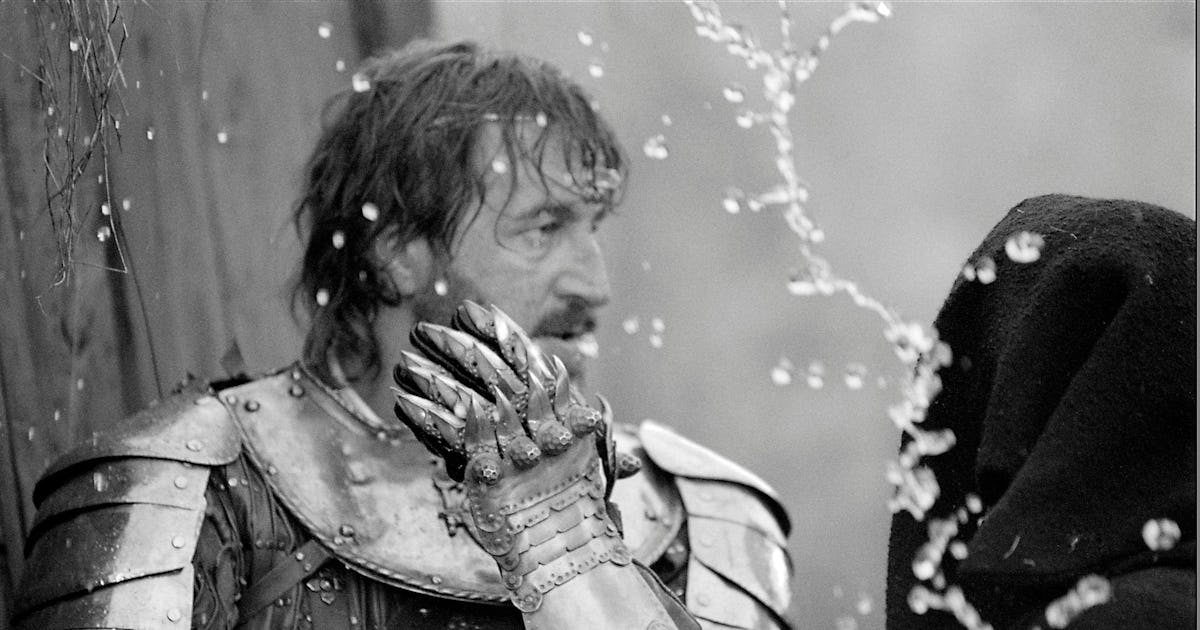Few duties have more importance in the Star Trek universe than First Contact missions. When a planet was on the verge of developing a warp drive, Starfleet would covertly observe and privately approach the scientists and leaders of an alien world to make their introduction to the vast, interconnected galaxy of worlds. Although this procedure was considered gravely important to the integrity of Starfleet, Star Trek would often flout its rigid maxims for the purposes of drama, in contradiction with the sanctity of the Prime Directive — the rule that prevents any Starfleet officer from interfering with the development of a less advanced planet. (Although don’t tell these guys.)
The ethics of first contact have not solely been explored by Star Trek (authors like Olaf Stapledon and Arthur C. Clarke had touched on the “zoo hypothesis” years before the show’s premiere), but thanks to almost 70 years of popularity and over 900 episodes, it’s easy to understand why the franchise is most closely associated with the sci-fi topic. There may be no better or bitterer tonic to the composed logic of Starfleet than Hard to be a God, an epic sci-fi drama that’s equal parts hypnotic and disorientating, that celebrates 10 years since its U.S. release this week.
On the planet Arkanar in the distant future, human scientists have infiltrated a primitive human society stuck in their medieval era, but their hopes to observe the planet’s expected renaissance are thwarted by fascist purges by a brutish, close-minded order.
One of the Earthmen is known as the noble Don Rumata (Leonid Yarmolnik), who lets his subjects and rivals believe he’s descended from a local pagan god, but his higher learning and outsider status still makes him a target for persecution. As the scientists are strictly forbidden from taking lives on their mission, Rumata spirals with the contradictory burdens of protecting the worthy innocent while letting history run its course. This is not his planet, he just recognizes how its people express themselves. Still, Rumata is only human, and over the course of the gruelling, filth-ridden three hours (captured in dizzying, handheld, crisp black-and-white shots), he is increasingly incensed by the illogic, stupidity, and barbarism of anti-intellectual, paranoid thugs — led by the usurper and authoritarian Don Reba (Aleksandr Chutko).
Hard to be a God is based on the novel by Soviet authors and brothers Arkady and Boris Strugatsky, whose initial pitch of a sci-fi adventure romp turned into something more probing after current events prompted a tale about the damning effects of anti-intellectualism. Almost 50 years later, director Aleksei German made their novel his final film, culminating his career of pessimistic and strikingly-shot satires on social decay. It’s a descent into sci-fi grimness that looks both backwards and forwards, making it one hell of a filmmaking swansong — Hard to be a God premiered months after German’s passing, having been completed by his son.
Hard to be a God was director Aleksei German’s final film.
Lenfilm Studio
The moral high ground of the “prime directive” in Hard to be a God has been lost among the floors of thick mud, clattering piles of armor and vulgarity of the peasant classes — the pressure cooker caused by Reba’s cruel and unjust purges makes the philosophy almost useless in a moment of overwhelming sensory immediacy. Every day, Rumata’s eager, searching eyes witness a society-wide self-sabotage, and after 20 years of living among these people, he cannot claim the clinical distance of a purely scientific observer. Does this mean he has a responsibility to protect those who he knows will build the planet’s future? Beyond the doctors, writers, and scientists, is it moral to let a regressive fascist order lay waste to a society you engage with in laboratory conditions?
The title, apart from going incredibly hard, gets to the pressing contradiction at the heart of the prime directive — no matter what precautions are taken, the interplanetary observer holds incredible power over the less advanced observees. The thought of executing Reba, dealing a quick blow to the reactionary movement on Arkanar, is a frequent temptation for Rumata, and the thought grows in both appeal and danger as his allies and loved ones are picked off with a punishing zeal. By the point where Rumata admits it is “hard to be a god” (underlined by a blank-faced stare into the camera, a fourth-wall breaking motif favored by German to emphasize that everything is being purposefully observed and documented), and breaks into a flurry of off-screen carnage, he has chosen the catharsis of his power over the philosophy that guided him to Arkanar in the first place.
But what good is intelligence if it cuts off your capacity for morality, empathy, and despair? First contact stories are only as interesting as their dramatic contradictions, and this monumental, one-of-a-kind sci-fi film suggests that a planet destroying itself would ruin not just citizens, but advanced, detached observers too, because they are cursed with knowing just how harmful this era will be.
Source link
Movies,Science Fiction,movies,science-fiction,entertainment,freelance,movie-tv-anniversary,international-movies-film,inverse-recommends-movies,homepage,adex-light-bid,freelance-recs


Average Rating